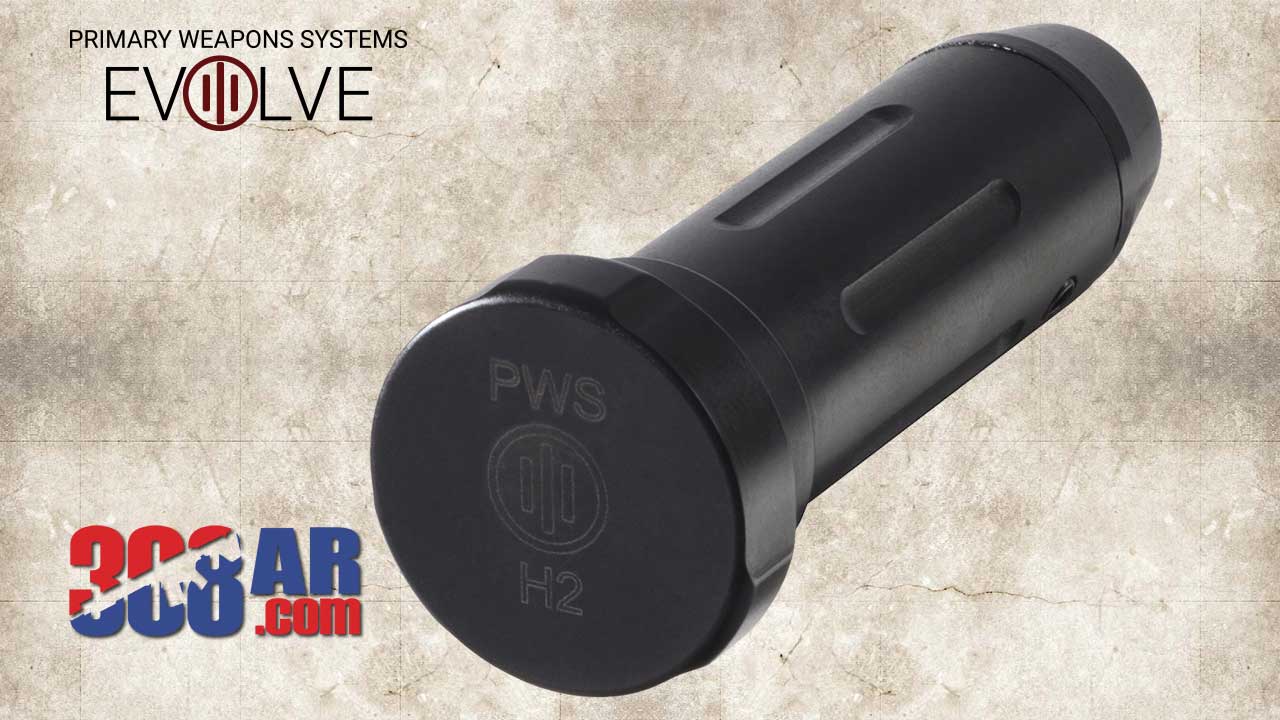Primary Weapons 308 AR H2 Enhanced Carbine Buffer

PWS AR 308 Enhanced H2 Carbine Buffer
The PWS AR 308 Enhanced H2 Carbine Buffer is a 4140 Steel Body .308 Short Buffer that features a unique fluted design with minimum contact points so that debris can clear away easily. The FNC LIFE HD Surface Treatment chemically bonds in lubrication for smoother cycling. Used for .308 applications and ships with all MK2 series complete lowers and rifles. Shortened to work with AR-10 platforms using standard buffer tubes. Weighs 4.4 oz
Visit PWS
What is Ferritic Nitrocarburizing (FNC)
Ferritic Nitrocarburizing (FNC) imparts high surface hardness, improved wear resistance and fatigue resistance to a wide variety of carbon steel, alloy steel and cast iron parts. Because the process is carried out at temperatures below 1100 F, retention of core properties and good dimensional control are achieved. In many applications, FNC treatment also improves corrosion resistance through the formation of a continuous compound layer on the work-piece surface which can allow for the elimination of subsequent protective plating operations or application of rust preventive.
Improve surface hardness and wear resistance with ferritic nitrocarburizing
The surface compound layer formed by FNC treatment is an epsilon iron-nitride compound and this layer may range in depth from .0002″ to .0010″ inch depending upon cycle parameters selected and base material being treated. FNC compound layer hardness values will typically range from 55 to 65 HRC depending on the base material being treated. Higher alloy steels with nitride forming elements (Cr, Mo, Ti, W, and Al) will have higher hardness compound layers than plain carbon and low alloy steels and will also benefit from the formation of an underlying higher hardness diffusion zone below the compound layer that gives improved fatigue life and helps to support the surface compound layer.
Ferritic Nitrocarburizing is often selected to replace chrome plating due to environmental concerns with plating. FNC also has been used to as an alternative process to solve problems with size change and distortion associated with higher temperature treatments like carburizing or carbonitriding.
Links to Other 308 AR | AR-10 | AR 308 Content
Manufacturers | 308 AR Compatibility | Charging Handles | Carbon Fiber Barrels| Barrels | AR Rifle Build Guides | AR Receiver Selection Guide | Trigger Selection Guide | Bolt Carriers | Armalite AR-10 Rifle Parts | AR-10 Rifle Barrel Selection Guide | 308 Scope Selection Guide | Tools | Scope Mounts |



